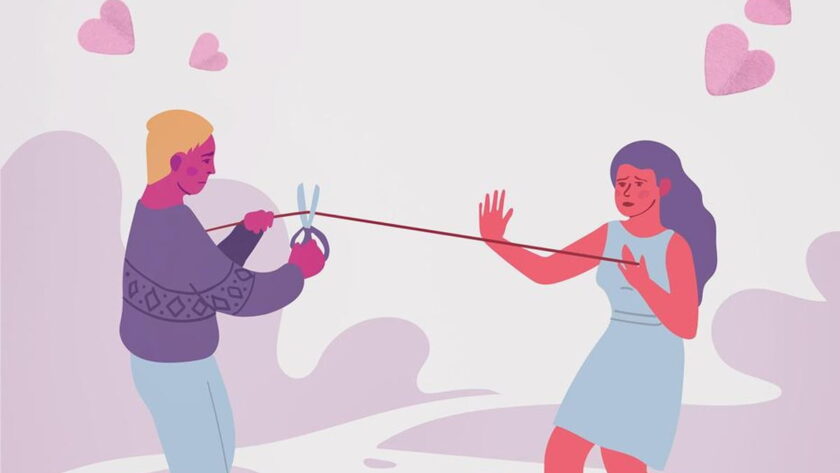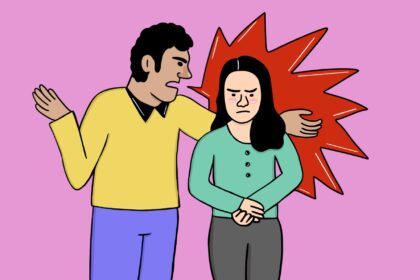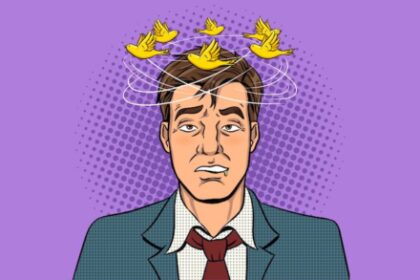Are you in a relationship that feels like you’re constantly walking on eggshells, putting the needs of your partner above your own, and sacrificing your own happiness for the sake of the relationship? If so, you may be in an unhealthy codependent relationship.
Codependency is a behavioral and emotional condition that can occur in any type of relationship, from romantic partnerships to friendships and family relationships. It is characterized by a strong emotional dependence on another person, often to the point where your own sense of identity and self-worth is tied to the relationship.
While codependent relationships can be difficult to identify, they can take a serious toll on your mental and emotional well-being, as well as your ability to live a fulfilling life. In this article, we’ll explore ten evident signs that you may be in an unhealthy codependent relationship and provide actionable tips on how to cut back on codependency without cutting out the relationship entirely.
If you’re ready to take the first step towards breaking free from codependency and reclaiming your own sense of self, read on.
Here are 10 signs that you may be in an unhealthy codependent relationship:
- You have difficulty making decisions without consulting your partner: If you find yourself unable to make even small decisions without first seeking your partner’s input or approval, this may be a sign of codependency.
- You have a strong need to please your partner: If you’re constantly going out of your way to make your partner happy, even at the expense of your own needs and desires, this may be a sign of codependency.
- You have a fear of abandonment: If the thought of your partner leaving you causes you intense anxiety or fear, this may be a sign of codependency.
- You have trouble setting boundaries: If you’re constantly giving in to your partner’s demands, even when they conflict with your own values or needs, this may be a sign of codependency.
- You prioritize your partner’s needs over your own: If you consistently put your partner’s needs ahead of your own, even when it’s not in your best interest, this may be a sign of codependency.
- You have low self-esteem: If you have a poor self-image and feel that you’re not worthy of love or attention on your own, this may be a sign of codependency.
- You feel responsible for your partner’s emotions: If you take responsibility for your partner’s emotions, feel guilty when they’re upset, or try to fix their problems for them, this may be a sign of codependency.
- You have difficulty expressing your own emotions: If you struggle to express your own emotions or feel like your feelings aren’t as important as your partner’s, this may be a sign of codependency.
- You have a history of unhealthy relationships: If you’ve been in multiple codependent relationships in the past, this may be a sign of codependency.
- You feel trapped in the relationship: If you feel like you can’t leave the relationship or imagine a life without your partner, even if the relationship is causing you significant distress, this may be a sign of codependency.
If you’re experiencing one or more of these signs, it’s important to recognize that codependency is a treatable condition. Seeking the help of a therapist or counselor can be a great first step towards breaking free from codependency and building healthier, more fulfilling relationships.
If you suspect you are in a codependent relationship, it’s important to take steps to cut back on codependent behaviors without necessarily cutting out the relationship entirely. Here are some strategies you can use to cut back on codependency while still maintaining a healthy relationship:
- Set boundaries: Start by setting clear boundaries with your partner. This may involve saying no to requests that conflict with your own needs or values, or simply taking time for yourself to pursue your own interests.
- Practice self-care: Focus on taking care of yourself physically, emotionally, and mentally. This can involve activities like exercise, meditation, or hobbies that you enjoy. By prioritizing your own well-being, you’ll be better equipped to handle the stresses of the relationship.
- Seek support: Consider seeking support from a therapist or counselor who can help you work through your codependency issues and develop healthier coping strategies.
- Communicate effectively: Work on improving your communication skills with your partner. This may involve learning how to express your own needs and emotions in a healthy way, as well as listening actively to your partner’s perspective.
- Encourage independence: Encourage your partner to pursue their own interests and develop their own sense of self. This can help to reduce your own feelings of responsibility for their emotions and well-being.
- Practice mindfulness: Practice mindfulness techniques like deep breathing, meditation, or yoga to help you stay present and focused on the moment. This can help to reduce anxiety and stress related to the relationship.
- Take responsibility for your own emotions: Recognize that you are only responsible for your own emotions, not your partner’s. Learn to accept and express your own feelings in a healthy way, without trying to control or fix your partner’s emotions.
- Develop a support network: Build a network of friends and family who can support you outside of the relationship. This can help to provide a sense of independence and reduce your dependence on your partner for emotional support.
Remember, cutting back on codependent behaviors is a process, and it may take time to develop new habits and ways of thinking. Be patient with yourself and your partner, and continue to work towards building a healthier, more fulfilling relationship. And of course, communication should be a top priority going forward.
In closing, recognizing the signs of an unhealthy codependent relationship can be a difficult and painful process, but it’s an important first step towards building a healthier, more fulfilling relationship with your partner. By taking the time to cut back on codependent behaviors and focus on your own needs and well-being, you can break free from the cycle of codependency and build a stronger, more resilient relationship.
Remember, the journey towards a healthier relationship is not an easy one, but it’s a journey that’s worth taking. With the right support and guidance, you can learn to set boundaries, prioritize your own needs, and communicate effectively with your partner.
You can learn to let go of the need to control or fix your partner’s emotions, and instead focus on building a relationship based on mutual respect, trust, and love.
Above all, know that you are not alone. Codependency is a common issue that affects many people, and there is help available. Whether you seek support from a therapist, counselor, or support group, know that there are resources available to help you on your journey towards a healthier, happier relationship.
With patience, perseverance, and a willingness to grow and learn, you can break free from codependency and build a relationship that truly supports and nourishes you.
According to Mental Health America, Co-dependency is a learned behavior that can be passed down from one generation to another. It is an emotional and behavioral condition that affects an individual’s ability to have a healthy, mutually satisfying relationship.
It is also known as “relationship addiction” because people with codependency often form or maintain relationships that are one-sided, emotionally destructive and/or abusive. The disorder was first identified about ten years ago as the result of years of studying interpersonal relationships in families of alcoholics.
Co-dependent behavior is learned by watching and imitating other family members who display this type of behavior.








